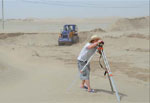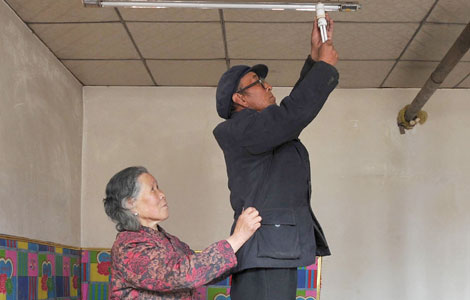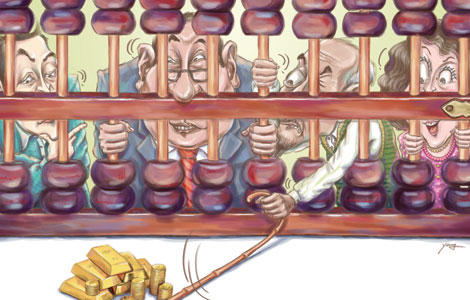Parents of teen vandal apologize after online rage
Updated: 2013-05-27 14:19
By JIN HAIXING (China Daily)
|
|||||||||||
Shen, the micro blogger who posted the picture of vandalized relics, visited the Egyptian temple on May 6. "I felt embarrassed. It was my most unhappy moment in Egypt."
He said he hopes the case will remind Chinese tourists to behave while abroad and teach them the importance of protecting cultural relics.
The bad manners of some Chinese tourists, which include spitting and littering, have featured prominently in the media in recent years.
In March 2009, a retired man from Changzhou, Jiangsu province, carved his name on a rock in Taiwan's Yehliu Geopark, which triggered intense criticism.
In February, a tourist carved his name on a large cauldron in Beijing's Palace Museum. Failing to find the culprit, one of the museum's staff posted a picture of the vandalized cauldron online.
Chen Xu, a researcher from the China Tourism Academy, said the Tourism Law, which will take effect in October, will force some Chinese tourists to behave properly at tourist sites, but in the long run the key is to raise awareness of the importance of cultural relics and proper manners.
"Travel agencies and guides should also be responsible for preventing tourists from vandalizing cultural relics," he said.
Ye Qianrong, a professor of Chinese studies at Tokai University in Japan, said Chinese tourists' practice of writing their names at tourist sites could date back to the "cultural revolution" (1966-76), when many young students wrote their names in many places.
Ye, who hails from China, said the lack of education for good manners in schools and families is also to blame.
Related:
Science students calculate formulas for love
First-tier cities barely livable, report says
Confucius is the first person who used Weibo
Related Stories
Forum on Pan-Asian traveler trends 2013-05-27 09:25
In the cradle of a sweet life 2013-05-27 09:20
China's wealthiest must-see villages 2013-05-24 14:01
Macao Fisherman's Wharf 2013-05-24 14:00
Surge in Chinese tourists drives new record in visitors to New Zealand 2013-05-24 08:43
Today's Top News
China tourists spend more
China's industrial profit up 9.3% in April
Li, Merkel vow to settle trade dispute
Charity denies fund embezzlement
Scrutiny urged to curb graft
China to enhance AU partnership
Radiation leak in Japan affects many
China, Germany vow to deepen cooperation
Hot Topics
Lunar probe , China growth forecasts, Emission rules get tougher, China seen through 'colored lens', International board,
Editor's Picks

|

|

|

|

|

|





